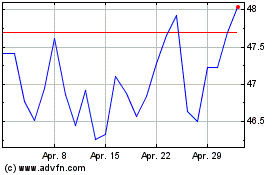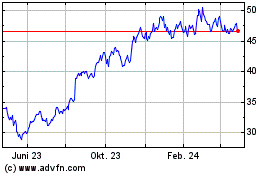According to H&R Block’s 2024 Outlook on American Life report
released today, Americans are optimistic about their economic
mobility, and the data shows they have reason to be. The fourth
annual report from H&R Block (NYSE: HRB) details how
most Americans (66%) across income levels and generations feel
optimistic about their income growth, retirement prospects, and
ability to maintain financial stability—despite the threat of
unmanageable debt.
The analysis from this year’s Outlook on American Life report
draws upon anonymized, aggregated tax return data from the 11.4
million tax filers who H&R Block tax professionals assisted
virtually or in one of 9,000 offices during tax season 2024. Tax
returns from the past 25 years were also utilized to identify
historical income trends across generations.
The report also includes findings from four nationwide surveys
of 7,852 Americans fielded between July and August 2024 to gather
perspectives on how Americans feel about their current financial
situations. All surveys were weighted to be nationally
representative of gender, age, ethnicity/race, education and
region. Among those surveyed were 1,503 Gen Z respondents, one of
the largest surveys to date of Americans ages of 18 and 28.
Collectively, H&R Block analyzed billions of data points to
paint a portrait of earning, investing, saving, career aspirations
and debt trends among four generations—Gen Z, Millennials, Gen X
and Boomers—representing hardworking Americans nationwide.
“Nearly 70 years of experience and preparing more than 20
million returns each year gives H&R Block a unique perspective
on hardworking American’s financial situations and the behaviors
that are shaping the economy,” said Curtis Campbell, President of
Global Consumer Tax, H&R Block. “We understand that as the
economy evolves, so do the needs of our clients. These insights,
drawn from decades of anonymized, aggregated data and extensive
research, enable us to help individuals, families and small
businesses navigate their financial journeys.”
Each Generation Has Greater Income and Buying Power Than
the Last
This year’s report found that most Americans, regardless of
income and demographics, are optimistic about their income growth
and ability to retire and maintain financial stability despite
rising costs and debt. In fact, most Americans expect to exceed
their parents’ economic opportunities, including 70% of Gen Z, 65%
of Millennials, 53% of Gen X and 60% of Boomers.
Tax-return data shows this optimism is well-founded: 71% of Gen
Z, 62% of Millennials, 56% of Gen X, and 51% of Boomers are earning
income at rates that beat inflation. Gen Z experienced the largest
relative increase in earnings, making 30% more in 2023 than they
did in 2022. Of those surveyed, 60% of Gen Z and 53% of Millennials
anticipate their financial situation improving in the coming year
primarily due to rising income.
Each generation has greater buying power as well. Gen Z is
enjoying as much as 30% more buying power than Millennials at their
same age. Similarly, Millennials enjoy as much as 30% more buying
power than Gen X at their same age. Gen X has about 20% more buying
power than Boomers at their same age.
Shrinking Households, Market Gains and Tax Credits are
Boosting Income
More Americans are opting not to have children, realizing a
significant cost savings. On average, it costs $237,482 to raise a
child to age 18.1 The number of Millennials—taxpayers in their
childbearing years—who file as DINKS (double-income-no-kids) has
more than doubled in less than a decade, from 7% in 2015 to 16.7%
in 2024.
For those who do have kids, they are benefiting from tax
credits. In 2023, the Child Tax Credit (CTC) collectively reduced
Americans' taxes by $74 billion and returned $48 billion to
taxpayers through refunds.2
More Americans are benefiting from market gains as well. About
32% of H&R Block tax filers reported investment dividends and
interest last year, up from 27% in 2015.
Gen Z Is Job-Hopping, State-Hopping, and Investing Their
Way to Success
Gen Z is more innovative and financially savvy than Americans
might expect. This generation is changing jobs at unprecedented
rates primarily to increase their salary. Masters of the side
hustle, they are also earning more by starting new businesses,
following their passions, and investing.
One in three changed jobs last year and more than one-third did
so to increase their salary. While a majority (59%) prefer to work
for a large company as a salaried employee, 29% aspire to work for
themselves by starting a business, influencing others on social
media, or working as an artist/maker.
Nearly one in four (24%) drives for an app to augment their
income, and more than half (51%) anticipate monetizing a hobby in
the coming year. To help reach their financial goals—which include
buying a house (63%) and saving for retirement (86%)—Gen Z is also
investing, primarily through employer-sponsored plans (41%), as
well as in cryptocurrencies (22%) and gold and silver (15%).
Further, this generation is more than twice as likely as
Millennials (9% vs 4%) to invest in fine art and collectibles.
Job-hopping Gen Zers changed state residency more than any other
generation last year, moving to cities where they could capitalize
on more lucrative career opportunities. The top destinations for
Gen Z were New York, Chicago, Brooklyn, San Antonio, and
Austin.
But Debt Is the Monster Lurking Under the
Bed
While the cost of living might keep Americans awake at night,
it’s debt that threatens to derail future financial stability. Gen
X is carrying the most credit card debt (55%), followed closely by
Millennials (49%), Boomers (47%), and then Gen Z (39%) – though
it’s Gen Z that feels the most burdened. Of those holding credit
card debt, as many as two in three people say their level of credit
card debt is unmanageable. On top of credit card debt, as many as 1
in 6 Americans hold student debt, and more than a third say they
have more student debt than they can manage.
Ongoing financial pressure and spending continue to undermine
Americans’ ability to save. Nearly one in three taxpayers say they
spent all or more than they earned last year. Almost one in five
say that, without income, they wouldn’t be able to cover household
expenses for a full week. Gen X is the most likely to be “not at
all confident” that they are doing what is needed to meet
longer-term goals, such as saving for retirement.
“No matter their life stage, or tax situation, H&R Block
helps hardworking Americans receive the best possible outcome at
tax time—with the care, dependability and expertise for which we
are known,” said Campbell.
To learn more and read the full Outlook on American Life report,
please visit
www.hrblock.com/outlook-on-american-life/.
To view media assets, including a downloadable report and
infographics, visit
www.hrblock.com/tax-center/media-kit/outlook-on-american-life-report-media-kit/.
1 “Annual Costs to Raise a Small Child Increased By 19.3%
Nationwide to $21,681 Between 2016 and 2021,” LendingTree.
https://www.lendingtree.com/debt-consolidation/raising-a-child-study/
2 “Filing season statistics for week ending May 10, 2024,” IRS.
https://www.irs.gov/newsroom/filing-season-statistics-for-week-ending-may-10-2024
About H&R BlockH&R Block, Inc. (NYSE:
HRB) provides help and inspires confidence in its clients and
communities everywhere through global tax preparation services,
financial products, and small-business solutions. The company
blends digital innovation with human expertise and care as it helps
people get the best outcome at tax time and also be better with
money using its mobile banking app, Spruce. Through Block Advisors
and Wave, the company helps small-business owners thrive with
year-round bookkeeping, payroll, advisory, and payment processing
solutions. For more information, visit H&R Block News.
|
Media Contacts: |
| Media Relations: |
Heather Woodard, (816) 379-2568,
heather.woodard@hrblock.com Media Desk, mediadesk@hrblock.com |
| |
|
| Investor Relations: |
Jordyn Eskijian, (816) 854-5674,
jordyn.eskijian@hrblock.com |
H and R Block (NYSE:HRB)
Historical Stock Chart
Von Dez 2024 bis Jan 2025

H and R Block (NYSE:HRB)
Historical Stock Chart
Von Jan 2024 bis Jan 2025
